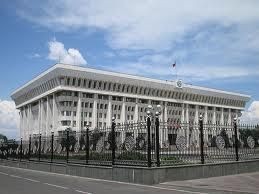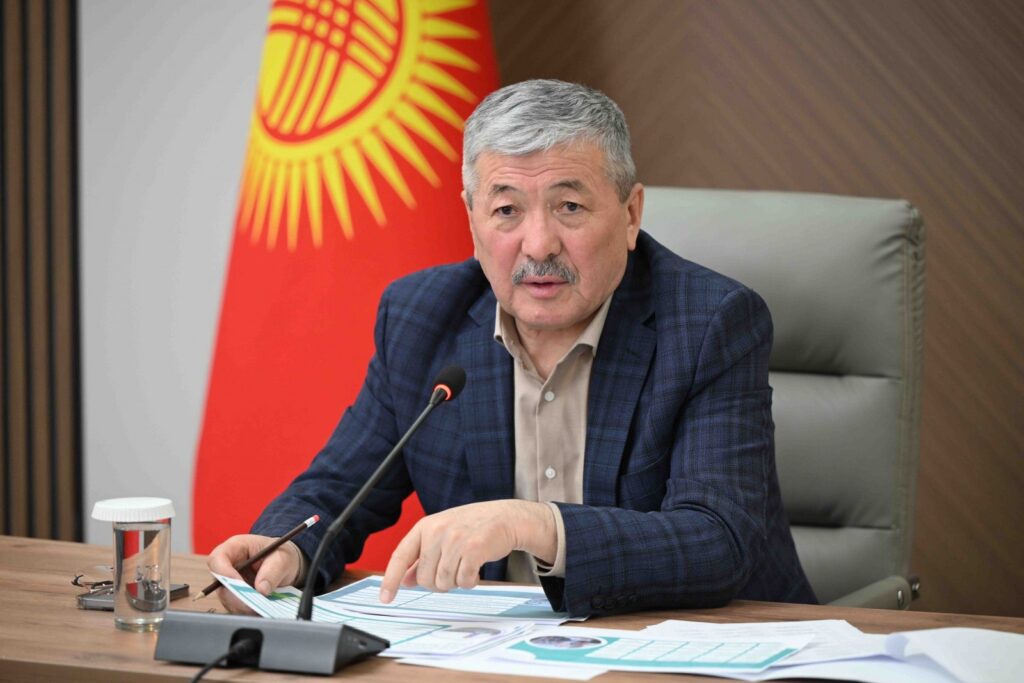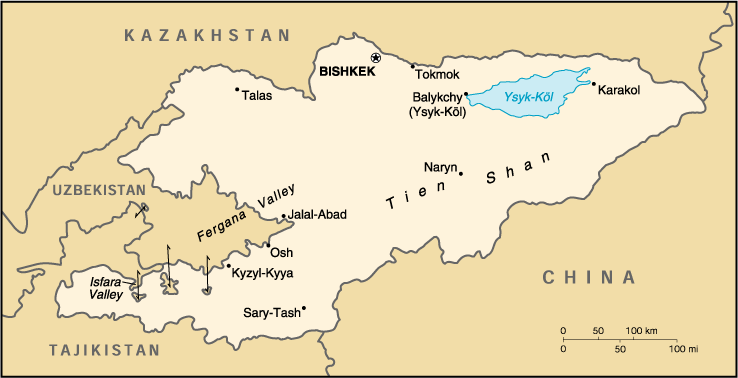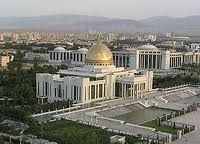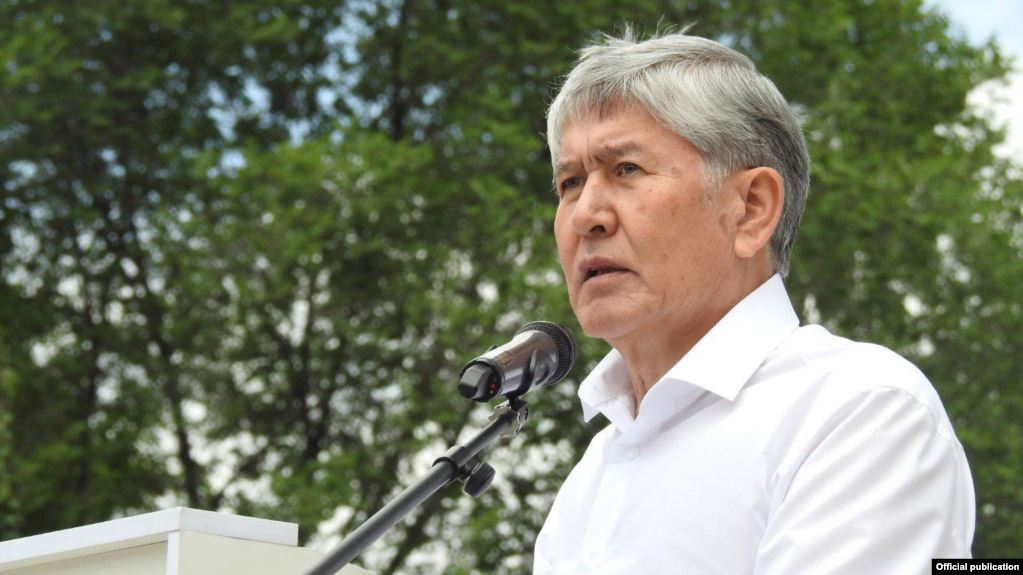BISHKEK (TCA) — The President of Kyrgyzstan is gaining strength, and although he will hardly abandon the political and economic course of his predecessor, tensions are possible within the country’s ruling elite. We are republishing this article on the issue by Nurjamal Djanibekova, originally published by Eurasianet:
The defection of a high-ranking figure from within Kyrgyzstan’s presidential administration has ignited talk of tensions within the ruling elite.
After days of uncertainty, President Sooronbai Jeenbekov on March 7 accepted the resignation of his chief of staff, Farid Niyazov, a prominent figure on the national political scene. Niyazov is widely known as a loyal confidante of Jeenbekov’s predecessor, Almazbek Atambayev.
Speaking to reporters this week, Jeenbekov denied that there was any tussle going on behind the scenes, but there are few analysts in Bishkek taking him at his word.
Whatever jostling is underway is presumed to be occurring between the Jeenbekov and Atambayev camps. Because of changes made to the constitution following the 2010 revolution, Atambayev was required to step down at the end of his six-year term. Jeenbekov, an influential but markedly dour politician from the rural south, was in effect a successor hand-picked by Atambayev. His assigned role was to continue Atambayev’s legacy, which is centered around incremental economic development, loyalty to Russia and ensuring stability at all costs, usually by jailing opposition politicians and persecuting independent journalists.
Jeenbekov duly won the October presidential elections with 54 percent of the votes cast in a contest many have said was marred by irregularities.
No sooner had Jeenbekov taken office, political commentators began to speculate about his designs on building his own independent power base. Political analyst Mars Sariyev told Eurasianet that the moment seems to have come for the president to come out from under Atambayev’s shadow.
“Jeenbekov will start positioning his own people. He has found room for movement, he will begin to operate more freely. He had the shortcoming of being fully controlled by Atambayev, but now people won’t say this anymore,” Sariyev said.
Edil Baisalov, a leading functionary in a prior presidential administration and an outspoken commentator on the political scene, echoed this point.
“[Jeenbekov] will pursue his political course, confidence in his own mandate will increase with every passing day, and he will gain strength. This is a natural process, but we can already say with certainty that he is not a puppet of Almazbek Atambayev, as the latter may have assumed [would be the case],” Baisalov said.
Niyazov’s role now, said Baisalov, will be to engineer a parallel center of authority in the Atambayev-founded Social Democratic Party of Kyrgyzstan, or SDPK, which occupies a dominant role in parliament.
Political analyst Denis Berdakov said he believes Niyazov’s resignation is connected to a planned SDPK congress, but he downplayed talks of tensions.
“We are expecting the party congress at the end of this month and the start of the next. This is quite an important congress — the SDPK is entering a period of qualitative change, and that is why Niyazov is leaving. There is no conflict between him and Jeenbekov as such,” he said.
The SDPK had planned to hold its congress immediately after the October elections, but the party has failed to agree on a date since that time.
Igor Shestakov, an analyst who spent much of the Atambayev presidency adopting fiercely pro-government positions, speculated that early parliamentary elections could be in the offing.
“On one hand, the SPDK has influence, because its representatives occupy positions in the presidency and the prime minister’s office. But Atambayev’s departure from the presidency requires an internal reordering of the party,” he said.
Several top positions in government are still held by Atambayev loyalists. There is Prime Minister Sapar Isakov, whom Atambayev considered his right-hand man, General Prosecutor Indira Djoldubayeva and the head of the State Committee for National Security, Adil Segizbayev.
Kyrgyzstan’s most recent parliamentary elections, in 2015, produced a fragmented, multi-party legislature that accurately reflected the erratic political scene.
The SDPK won the largest bloc of seats in the 120-seat Jogorku Kenesh but fell more than 20 deputies short of securing an outright majority, forcing it into a coalition deal. This is nothing unusual for Kyrgyzstan. With the exception of the authoritarian phase ushered in by now-deposed President Kurmanbek Bakiyev between 2005 and 2010, the Jogorku Kenesh has historically served as an anarchic forum for horse-trading and grandstanding — a refreshing contrast with the seat-warming that mainly occurs in other Central Asian parliaments.
All such considerations are largely moot though, since real power lies in the president’s hands, despite constitutional tinkering ostensibly aimed at balancing authority among the branches of government. Any attempt by the SDPK to reassert its heft and to present a counterweight to Jeenbekov in the process would present an intriguing scenario.
Atambayev hinted back in November that he might go down this path, contradicting earlier pledges to quietly slip away from the political scene and devote more time to his creative streak — he is a keen singer-songwriter. In a cryptic statement in the days before leaving office, Atambayev vaguely dangled the prospect that he could run for parliament as the list-topping candidate for the SDPK.
“I don’t plan to become chairman of parliament or the government, or even a member of parliament, but I will be number one,” Atambayev said.
After spending the latter phase of his time in office crushing his opponents by various means, Atambayev may find himself in the improbable position of crafting an opposition force of sorts.
